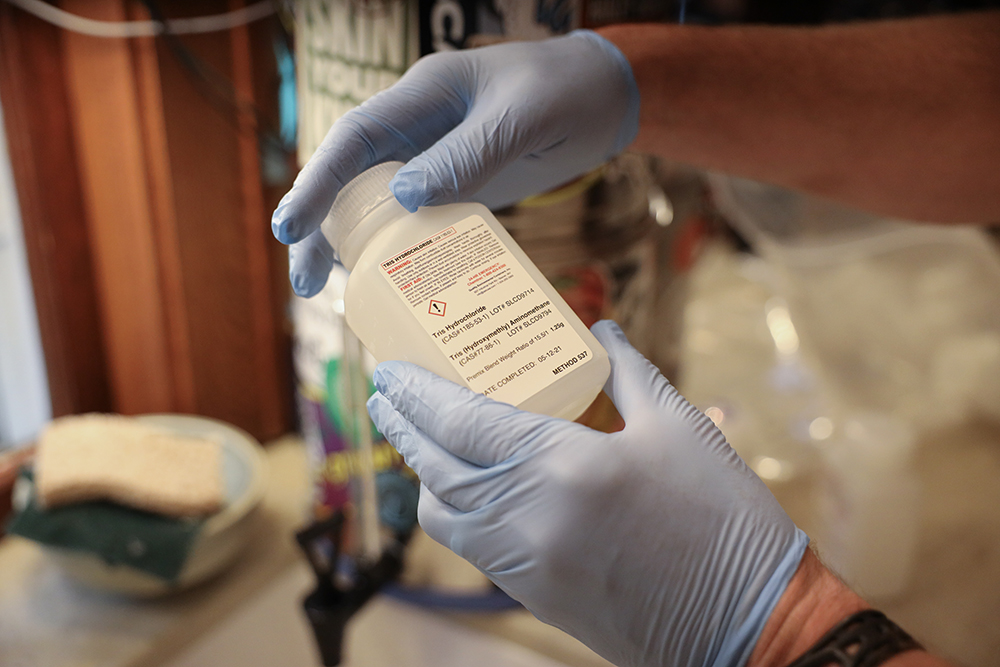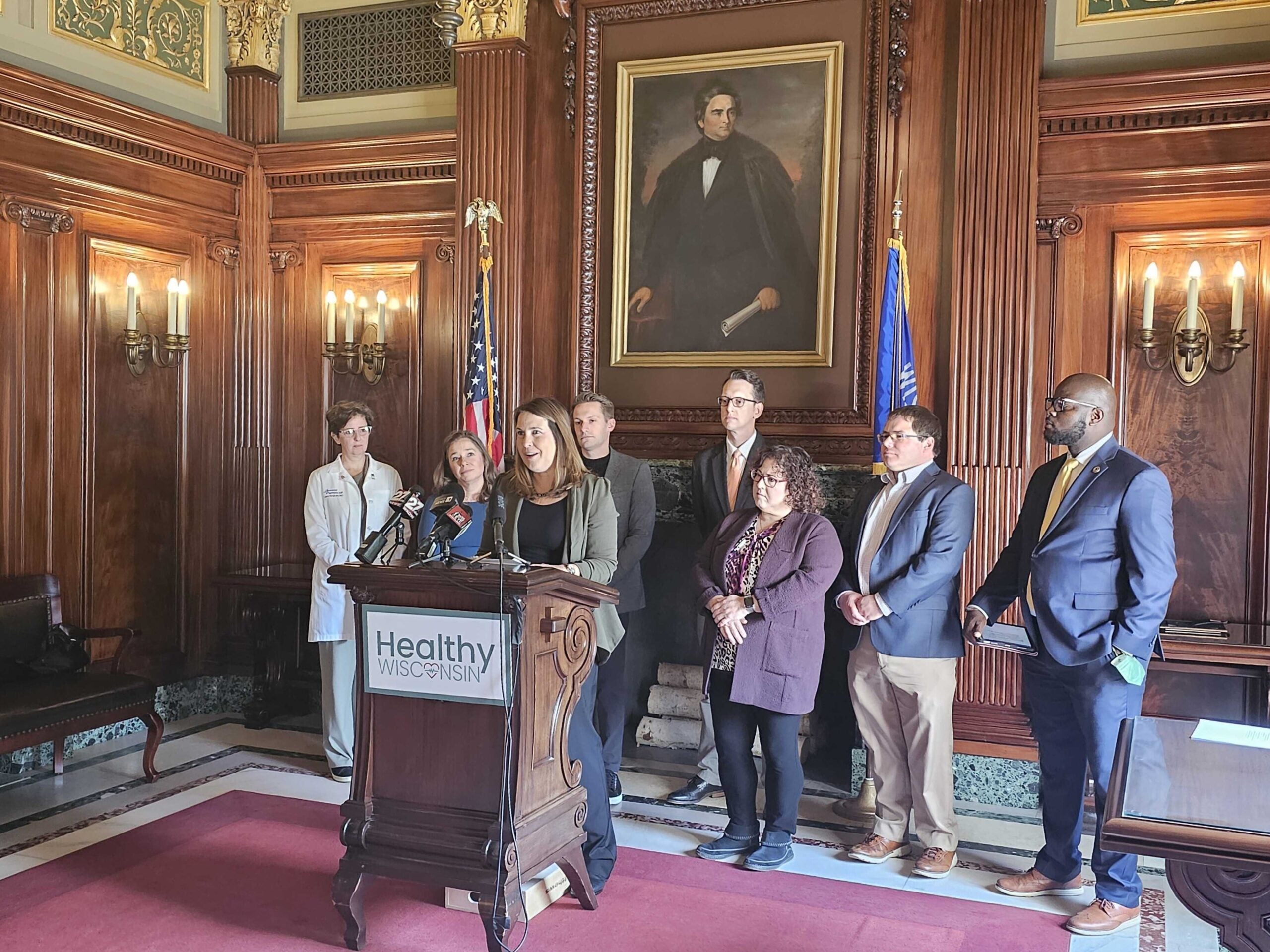In the last budget, the state Legislature approved a measure requiring able-bodied adults with no dependents to be screened for illegal drug usage in order to receive state food assistance.
Wisconsin is now seeking a federal waiver to be able to implement the changes to the FoodShare program, beginning Nov. 1, 2018. The state Department of Health Services held a public hearing Monday in Green Bay which was sparsely attended. Two people gave testimony.
One of them was Vanessa Kuettel, a staff attorney for Legal Action of Wisconsin. She said the rule change violates the Fourth Amendment of the U.S. Constitution prohibiting unreasonable search and seizure. Kuettel added that federal law already requires drug testing for benefit applicants who have been convicted of felony drug crimes within the last five years.
Stay informed on the latest news
Sign up for WPR’s email newsletter.
“That would be individualized suspicion for the drug testing,” Kuettel told reporters. She said the Wisconsin rule goes beyond that standard and that, “this proposal here is talking about suspicion-less drug testing and that’s what’s going to have a negative impact on our clients because … it will then impeded their access to food.”
DHS’ Medicaid Director Michael Heifetz said some aspects of the rule change are still in question, including what kinds of drug tests will be conducted and what governmental entity will pay for them.
“The state will be paying for the drug tests, the federal government may help us with that,” he said. “Much of the FSET (Food Share Employment and Training Program) is funded by the federal government but that’ll be an ongoing conversation.”
Heifetz added that not everyone will be tested unless they fail a questionnaire assessment upon application.
“We’re going to use scientifically validated testing processes,” he said. “There are numerous statistically valid mechanisms to use for the screening process as well as for the testing process if necessary.”
The other person offering testimony Monday was Shawn Tessmann from the Dane County Department of Human Services. Tessmann also oversees the FoodShare program in eight southcentral Wisconsin counties.
She said the rule change will generate thousands of calls from confused participants.
“Good customer service and basic decency are going to compel my staff to do their best to answer questions,” Tessmann said. “How will our consortium of counties be reimbursed for the additional calls and time on the calls explaining these new requirements?”
Tessmann said she will probably have to hire at least one more full-time staff member to handle the influx.
DHS will take written or e-mailed comments until Monday, Aug. 28.
Wisconsin Public Radio, © Copyright 2025, Board of Regents of the University of Wisconsin System and Wisconsin Educational Communications Board.



